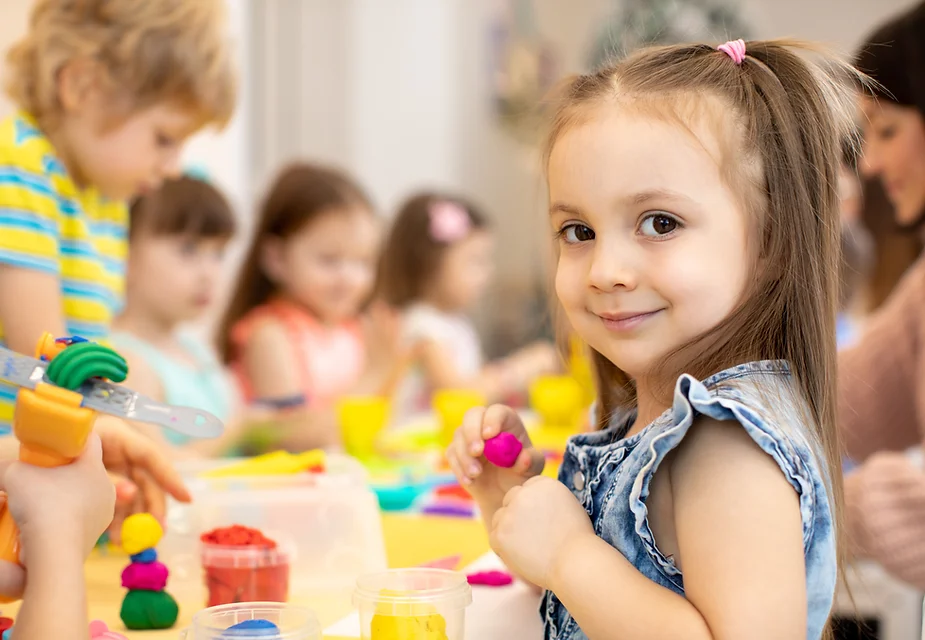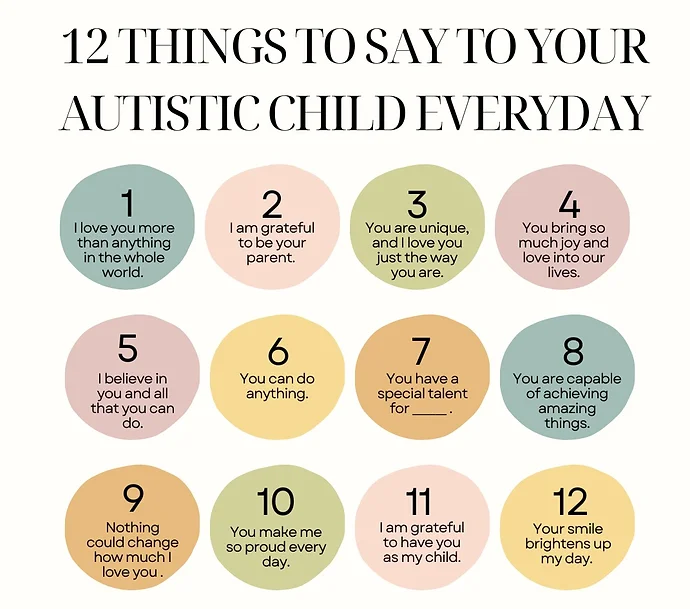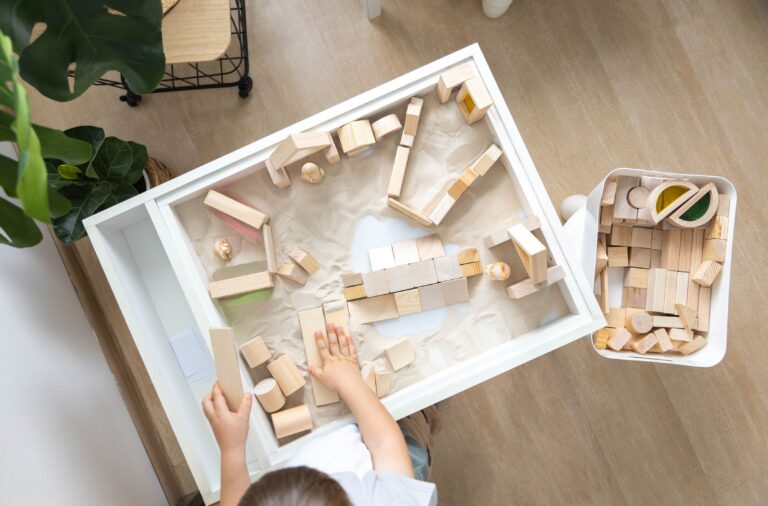Building Strong Self Esteem in Autistic Children: A Parent’s Guide

This post may contain affiliate links and I could earn a small commission at no cost to you. However, I will never recommend anything that I do not believe in or use myself. You can read more about my disclosure policy here.
One of our most important responsibilities as parents is to nurture our children’s self esteem. A healthy sense of self worth lays the foundation for a confident and resilient individual. Self esteem is the foundation upon which a child’s emotional well being and future success are built.
When it comes to autistic children, the significance of nurturing self esteem becomes even more profound. In a society that often struggles to understand the depth of their capabilities, building self esteem becomes a beacon of hope, a lifeline to resilience, and a gateway to a future where their potential knows no bounds.
Keep reading to explore effective strategies that parents can employ to build self esteem in their autistic child, empowering them to thrive in a world that often misunderstands their needs and strengths.
What Is Self Esteem?
Self esteem refers to the way children perceive and value themselves. It encompasses their beliefs about their abilities, strengths, and worth as individuals. A child with healthy self esteem possesses a positive self image, recognizing their unique qualities and feeling confident in their potential to navigate challenges and succeed.
This inner sense of worthiness lays the foundation for emotional well being, resilience, and the ability to form positive relationships. As children develop self esteem, they learn to embrace their strengths, acknowledge their areas for growth, and cultivate a sense of self acceptance that empowers them to confidently explore the world around them.

Why Self Esteem Is Important for Autistic Children
Self esteem holds particular significance for autistic children due to the unique challenges they may encounter. A healthy sense of self worth is the emotional bedrock upon which they can build resilience and face life’s hurdles.
With a strong self esteem foundation, autistic children are better equipped to navigate social interactions, which can often be perplexing and stressful. They approach these situations with confidence, initiating conversations, participating in group activities, and forging connections with peers.
Moreover, self esteem has a direct impact on academic success. Autistic children who believe in their abilities tend to excel in school. They are more motivated to take on academic challenges, seek assistance when necessary, and maintain a positive outlook on learning and growth.
In the face of potential bullying, which autistic children are unfortunately more susceptible to due to their differences, self esteem acts as a protective shield. When they have a robust self concept, they are less likely to internalize hurtful messages and are better equipped to handle such situations.
Furthermore, a healthy self esteem nurtures a positive sense of identity and belonging. Autistic children develop an appreciation for their uniqueness and perceive themselves as valuable contributors to their families, schools, and communities. This sense of belonging is integral to their overall well being.
Self esteem also empowers them to self advocate and make choices aligned with their preferences and needs. It propels them toward opportunities for growth and independence, laying the groundwork for their journey into successful adulthood.
In essence, self esteem is not a mere luxury but a fundamental cornerstone for the emotional, social, and academic development of autistic children. It equips them with the confidence and resilience to confront challenges and thrive in a world that may not always comprehend their distinctive strengths and needs.
Related: How to Calm Autistic Meltdowns: 7 Tips that Work

Signs of Low Self-Esteem in Autistic Children
Recognizing the signs of low self esteem in autistic children is crucial for parents and caregivers. It can provide insights into their emotional well being and guide efforts to boost their self esteem through positive reinforcement, support, and targeted interventions. Here are some common indicators to watch for:
Self-Criticism: Autistic children with low self esteem may frequently engage in self criticism, doubting their abilities and frequently expressing negative thoughts about themselves.
Avoidance of Challenges: They might avoid taking on new challenges or tasks, fearing failure or inadequacy.
Overly Apologetic: Constantly apologizing for perceived mistakes or intrusions, even when unnecessary, can be a sign of low self esteem.
Social Withdrawal: Low self esteem can lead to social withdrawal, where they avoid interactions with peers and isolate themselves.
Perfectionism: A tendency towards perfectionism can develop as they set unrealistically high standards for themselves and become overly critical of their own work.
Lack of Self-Advocacy: They may struggle to express their needs and desires, hesitating to advocate for themselves in various situations.
Dependent Behavior: A lack of confidence may manifest as dependent behavior, where they rely heavily on others for decision making and problem solving.
Negative Body Image: Some autistic children with low self esteem may express dissatisfaction with their physical appearance, believing they don’t meet societal standards.
Difficulty Accepting Praise: They might find it challenging to accept compliments or praise, often deflecting or downplaying their achievements.
Avoiding Eye Contact: Avoiding eye contact during interactions can be a subtle sign of low self esteem, as they may feel uncomfortable or self conscious in social situations.
Excessive Sensitivity to Criticism: They may be hypersensitive to criticism, taking it deeply to heart and becoming overly distressed by even constructive feedback.
Reluctance to Try New Things: A reluctance to try new activities or explore unfamiliar territory can indicate a lack of self confidence in their abilities.
Self-Isolation: Extreme cases may involve self isolation, where they choose to spend extensive amounts of time alone, avoiding social interactions altogether.
Related: 10 Of The Best Children’s Books About Autism

9 Ways to Boost Self Esteem in Autistic Children
1. Unconditional Love and Acceptance
Creating an environment of unconditional love and acceptance is vital for fostering self esteem in children. This means showing unwavering love regardless of their successes or failures.
By consistently providing a warm and nurturing atmosphere, parents communicate that their child’s worth is not tied to achievements.
Demonstrating affection through both words and actions, such as hugs, kind gestures, and quality time spent together, reinforces the idea that their value is intrinsic and not contingent on external accomplishments.
2. Celebrate Their Unique Qualities
Autistic children possess a plethora of unique qualities, and it’s crucial for parents to not only recognize but also celebrate these individual traits.
Take the time to understand what makes your child special. It could be their intense focus on a particular topic, their love for routines, or their remarkable memory. Encourage them to express themselves and their interests openly.
By validating and celebrating these distinctive qualities, you send a powerful message that their uniqueness is not something to be hidden or ashamed of, but rather a source of pride and identity.
3. Emphasize Strengths, Not Weaknesses
Every child, regardless of their neurodiversity, has a combination of strengths and weaknesses. For autistic children, it’s essential to emphasize and nurture their strengths.
Discover what they excel at, whether it’s artistic talents, mathematical prowess, or an exceptional memory, and provide opportunities for them to develop and showcase these abilities.
This not only builds their self esteem but also reinforces the idea that they have valuable talents that can contribute positively to the world.

Related: Positive Affirmations For Autistic Children You Need To Know
4. Foster a Safe and Supportive Environment
Creating a safe and supportive environment is of upmost importance for nurturing self esteem in autistic children.
Autistic individuals often find comfort in routines and predictability, so establish clear daily routines and boundaries. Consistency and a sense of safety will allow them to feel more secure, enabling them to explore the world with confidence.
Additionally, offer emotional support by actively listening to their concerns, validating their feelings, and demonstrating that you are there to provide unwavering support.
5. Encourage Independence and Problem Solving
Autistic children, like any other child, benefit greatly from developing independence and problem solving skills. Provide them with age appropriate responsibilities and encourage them to make decisions, no matter how small.
When they face challenges, resist the urge to solve their problems for them. Instead, guide them in finding solutions. This empowers them to take control of their lives and build self esteem through a sense of accomplishment.
6. Teach Self Advocacy
Self advocacy is a vital skill for all children, especially autistic ones. Help them learn how to express their needs, preferences, and boundaries to others effectively. Role playing different scenarios can be a valuable exercise in teaching self advocacy.
By arming them with the ability to communicate their requirements, you empower them to assert themselves confidently, even in unfamiliar or challenging social situations.
7. Provide Social Skills Support
Social interactions can be particularly challenging for autistic children, impacting their self esteem.
Support social interaction by planning and autism friendly playdate. An autism friendly playdate gives autistic children the chance to practice social skills in real-world situations, helping them become more comfortable interacting with peers. It’s a time for learning, but also for fun and building confidence and self-esteem.
Consider enrolling them in social skills groups or therapy to help them navigate these complex interactions. These programs provide a safe and structured environment for practicing social skills, improving communication, and boosting their self confidence in social settings.
Related: How to Plan an Awesome Autism Friendly Playdate
8. Encourage Peer Interactions
Peer interactions are essential for building social skills and fostering a sense of belonging.
Facilitate opportunities for your child to interact with peers who share their interests. This could involve enrolling them in extracurricular activities or clubs related to their passions.
Through shared activities and common interests, they are more likely to form meaningful connections and friendships, which can significantly boost their self esteem.
9. Be Patient and Understanding
Finally, perhaps the most critical strategy is to remain patient and understanding. Parenting an autistic child can be challenging, and there may be moments of frustration or meltdowns.
It’s crucial to remember that these incidents do not reflect your child’s self worth. Instead, they are expressions of their unique challenges and sensitivities.
During difficult times, offer comfort, reassurance, and a constant reminder of your unconditional love and support.
Final Thoughts
Building self esteem in autistic children requires patience, understanding, and a commitment to celebrating their uniqueness.
By emphasizing their strengths, providing a supportive environment, and teaching essential life skills, parents can empower their autistic children to develop a healthy sense of self worth.
Remember that every child is different, and progress may be slow, but with love and support, your child can thrive and embrace their individuality with confidence.
Recommended
- How to Plan an Awesome Autism Friendly Playdate
- Positive Affirmations For Autistic Children You Need To Know
- 10 Of The Best Children’s Books About Autism
- How to Calm Autistic Meltdowns: 7 Tips that Work
- 11 Best Tips For Potty Training An Autistic Child






